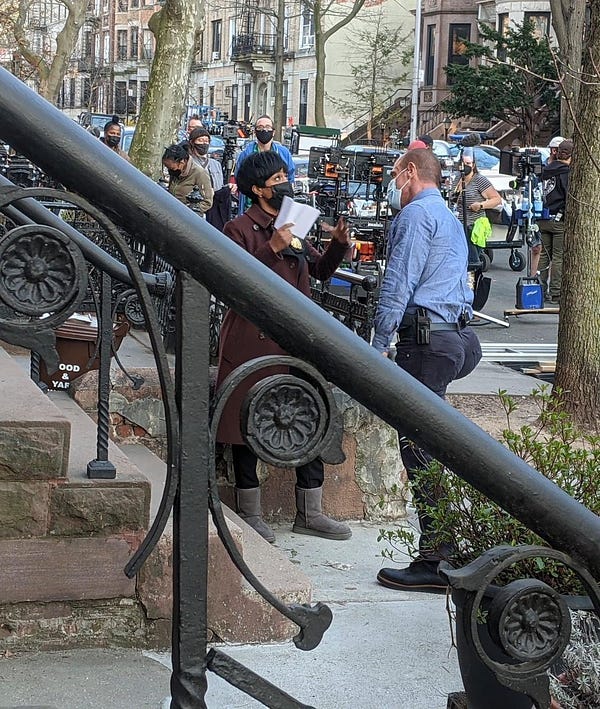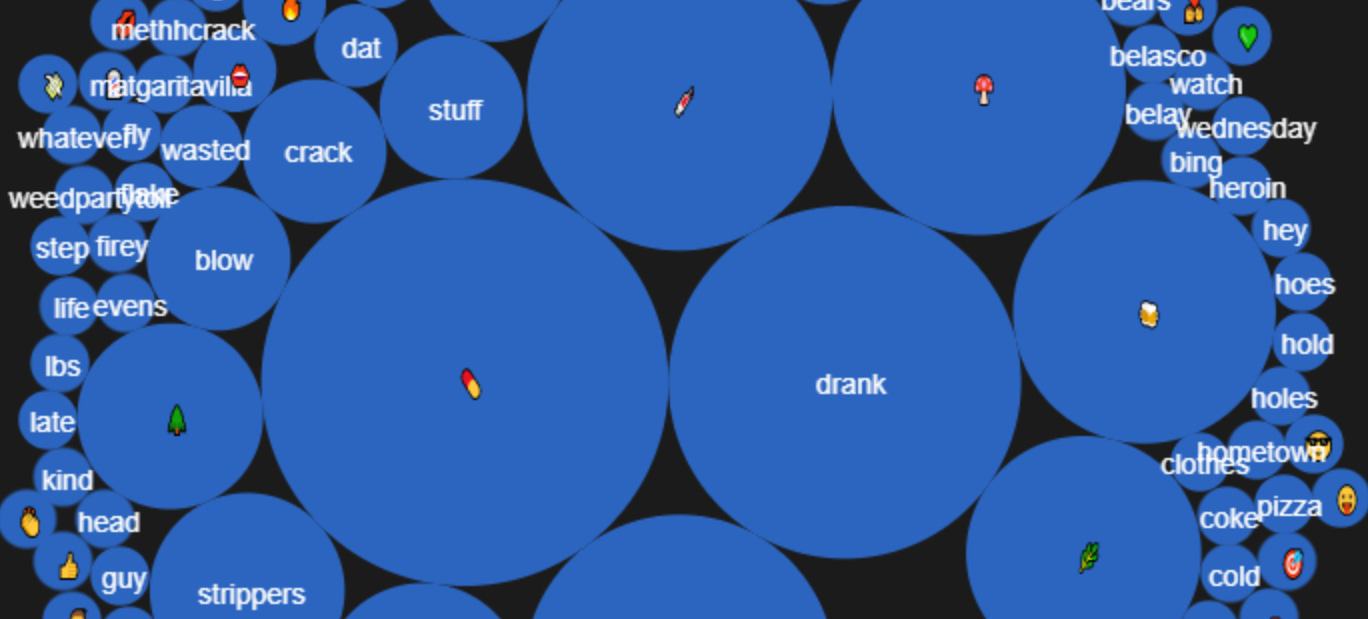It's more fun to believe in magic
Venmo flexes, pyramid schemes, "the miscarriage problem," pasta content, Wikifeet and TikTok's boomer stars
In 2015, Mike Lacher and Chris Baker — the two guys responsible for many of your favorite internet stunts — launched a website called Vicemo with a simple, genius premise. Vicemo scraped public transactions from Venmo, where such information is public by default, and posted all the ones involving drugs, sex and booze to a feed anyone could browse. Many of the posts were very obviously jokes. But many were also very obviously broadcasts, intended to convey the payer’s edginess or wealth or access to drugs to an unseen audience.
I’ve been thinking a lot about Vicemo this week, for fairly obvious reasons. On Thursday, The Daily Beast reported that Florida Rep. Matt Gaetz — the 38-year-old Republican under investigation for possible sex trafficking — is also entangled in a web of public Venmo transactions with another accused trafficker and three young women.
Much of the discourse around Gaetz’s Venmo assumes he didn’t know his transactions were public. That is interesting and possible, but … I’m less convinced. People use PayPal et al to send money. Venmo payments, on the other hand, are a flex. And this distinction is pretty well established — I wrote about it when Vicemo launched six years ago, a lifetime (!) on the internet:
Since 2009, when it launched in relative obscurity, Venmo has become the payment platform of choice for the post-cash generation, many of whom rely on the app for mundane daily transactions like paying rent or splitting a bar tab …
But as many faithful users have pointed out before, the “Venmo-ing money” part of Venmo is not its primary appeal. Venmo is unusual because it doubles as an unlikely social network, a place to see who your friends hang out with and what they’re doing. Whenever you send someone money on the app, you note what it’s for. And by default, those notes — sometimes sincere, sometimes silly — display publicly: a little trail of financial breadcrumbs that, taken together, can suggest larger stories.
Much larger stories!
As for Vicemo, it appears to have stopped updating at some point during the pandemic. R.I.P., Vicemo. No one learned their lesson.
P.S. I did an interview with Uses This a little bit ago about the tools I use to write this newsletter & my other work. It’s online now for those who are interested.
P.P.S. You didn’t think I’d forget your weekly Major Biden pupdate, did you?? Alas, if using a cutesy dog-voice makes dogs insecure, as this article claims … then both my pups are gonna need therapy.
If you read anything this weekend
“I Called Off My Wedding. The Internet Will Never Forget,” by Lauren Goode in Wired. It would be difficult to distill the varied casual cruelties of big tech’s biases into a single phrase. But you could do worse than “the miscarriage problem” — the term assigned to those bothersome users who don’t want social media platforms to monetize their bad experiences and memories. We talked about this a bit in December, when “year in review” content is ubiquitous. It will perhaps not surprise you to learn that no one has fixed this problem yet!!
“In a Pennsylvania town, a Facebook group fills the local news void,” by Brandy Zadrozny for NBC News. This is ostensibly a story about a single Facebook group in a single small town… but as goes Chippewa Township, so goes the nation. Local news organizations may have disappeared in many towns, but the practice of producing local news has not. It’s just been outsourced to unpaid, untrained volunteers, who — perhaps predictably — sometimes mess things up.
“Money for Nothing,” by Vicky Osterweil in Real Life. First off: Sorry. Every week I tell myself I will not read or link to further articles about NFTs. But I read a single line of this one and was immediately sucked in, perhaps because it validates all my feelings: “It’s more fun to believe in magic than to recognize how much of financialized capitalism is just scams and pyramid schemes.”
“The Pasta is Content,” by Kyle Chayka in Dirt. To fully appreciate this, you should probably know at least a little about the podcast-invented pasta I shared two weeks ago. But even if you don’t, I think there’s also something bigger/more thematic here, in that the things presented to us as “stories” or “narratives” online are in fact often marketing copy or sales pitches … and no one on either end of that equation really tries to differentiate them.
“An Interview with the Man Who Keeps Uploading My Feet to Wikifeet,” by Laura Bassett in The Cut. I feel enormously conflicted and confused that I came away from this bizarre Q&A … kind of liking the foot creeper.


… the return of a meme we didn’t know we needed.
The classifieds
This edition of Links is powered by rosé weather, Law & Order: Organized Crime (lol how did you know??) and the following very wonderful sponsors:
A Most Unreliable Narrator — Slice of life newsletter from a Gen-Xer about town. I don’t live in Brooklyn nor did I attend a fancy college but I hope you find me charming just the same. May contain many swears. Subscribe here.
The Bowie Book Club Podcast — Wild speculation about David Bowie and the books he loved every month since 2016. Listen here.
HomeTownLocator — The Swiss Army knife for local research, HomeTownLocator has Community Profiles with boundary maps, demographic data & nearby popular places in communities as small as neighborhoods and as large as metropolitan areas. Learn more here.
📣📣 Wanna see your name/side hustle/shout-out here, while supporting the free edition of this newsletter?? Fill out this form; it’s affordable!!


Postscripts
Viral Apology Video. TikTok’s unsung boomer stars. “The most toxic place” on the British internet sounds … benign, by my basement-low American standards? The rise and fall of India’s genius missed call industry. How Amazon changed the geography of work and wealth. Can we ever appreciate art that’s made by computers? (More durably than we “appreciated” NFT art, I suspect!!)
I’m sorry to everyone I’ve offended with the thumbs-up emoji. I may … actually be in love with the guy behind @TurboVax. We are living in a failed state. What new horror will Gen Z rebrand next? How fan fiction relates to grief. How Netflix made celebrities of foreign-language voice actors. Last but not least: a fun browser game that demonstrates … how bad AI is at detecting emotions!
That’s it for this week! Until the next one. Warmest virtual regards.
— Caitlin




Curious if the link to "everyone I’ve offended with the thumbs-up emoji" article was intended to be one behind a paywall, or if that was established after the link was sent?